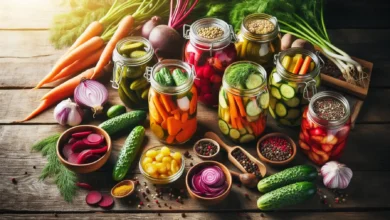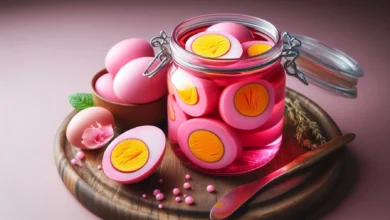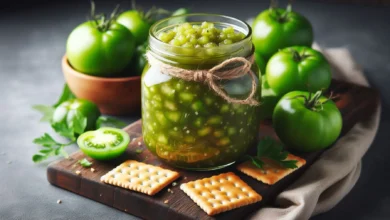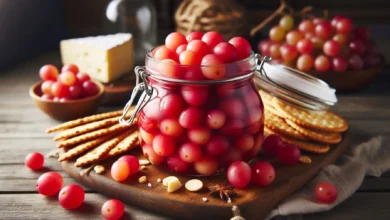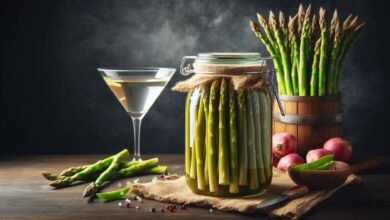Preserving Chicken Eggs Safely – The Ultimate Guide
Top Egg Preservation Methods for Long-Lasting Freshness
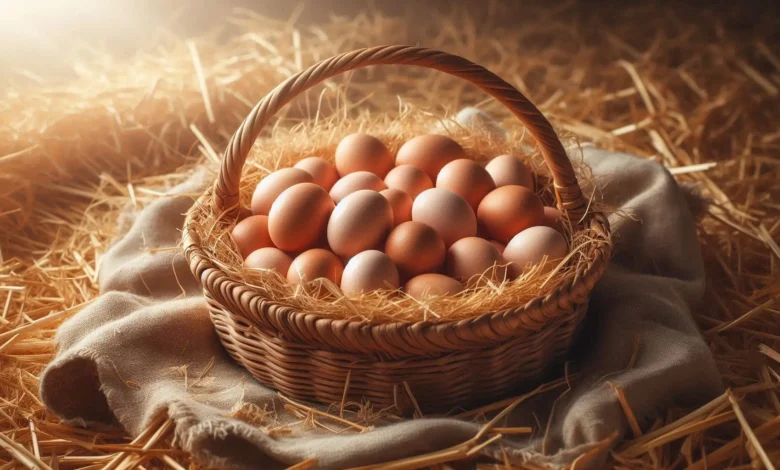
Introduction to Egg Storage and Preservation
Preserving chicken eggs is an essential skill for anyone looking to reduce waste and enjoy fresh eggs year-round. Proper egg storage and preservation methods not only extend the life of your eggs but also help you save money and ensure a steady supply for cooking and baking.
Why is Preserving Eggs Important?
Eggs are a staple in many households, but they have a limited shelf life if not stored correctly. Learning how to preserve eggs helps:
- Avoid food waste.
- Maintain their freshness and nutritional value.
- Prepare for seasonal egg shortages.
By preserving eggs, you can confidently store surplus from your backyard chickens or bulk purchases from the market without worrying about spoilage.
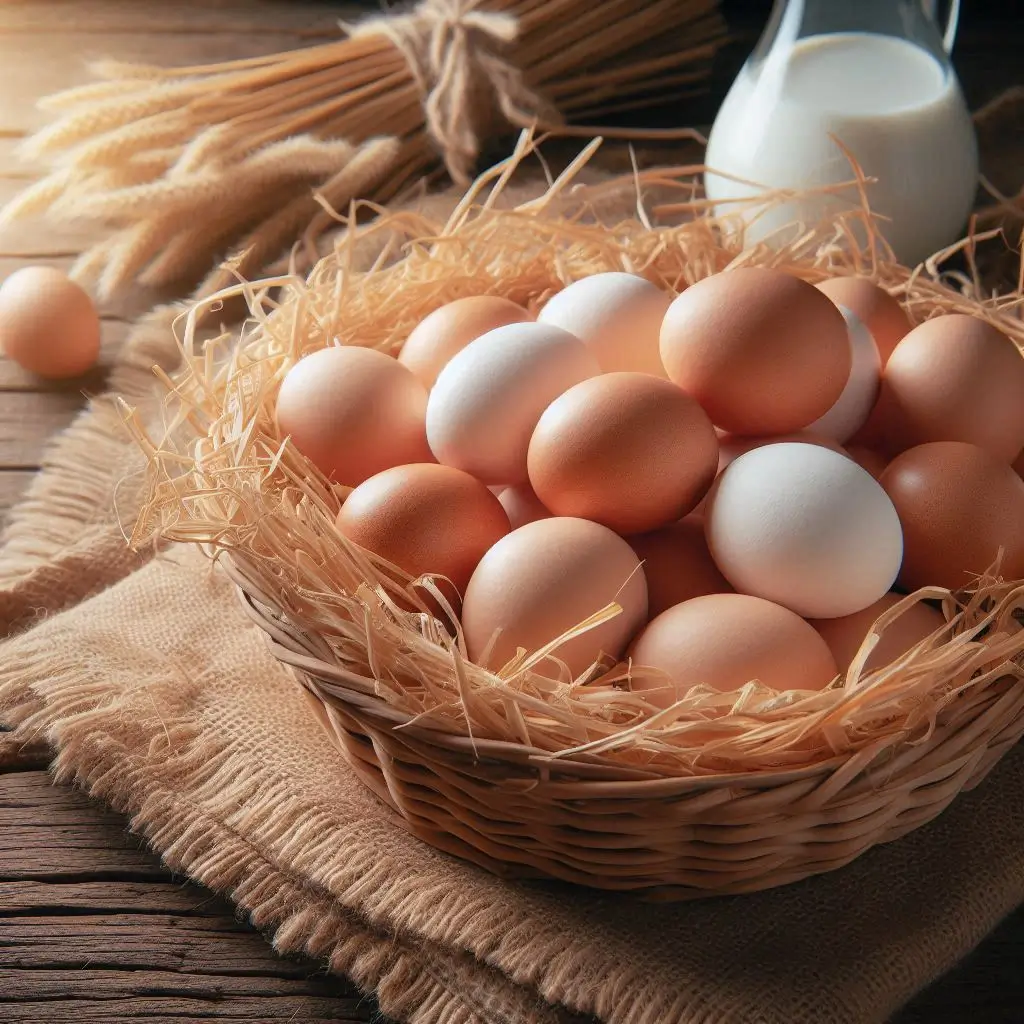
Overview of Egg Storage and Preservation Methods
There are many ways to store and preserve eggs to fit your needs. Popular methods include:
- Refrigeration, which slows spoilage and keeps eggs fresh for weeks.
- Room temperature storage for short-term use.
- Advanced techniques like freezing, dehydrating, and water glassing for long-term preservation.
Each method has unique benefits, making it easy to choose the one that suits your lifestyle and storage space.

Common Challenges in preserving chicken eggs
Preserving eggs requires some knowledge and care to avoid issues like:
- Spoilage: Eggs can develop odors or textures that indicate they’ve gone bad.
- Contamination: Improper handling can lead to bacterial growth.
- Nutritional Loss: Some methods may alter the texture or nutrient profile of the eggs.
By understanding these challenges, you can take steps to ensure safe and effective egg preservation at home.
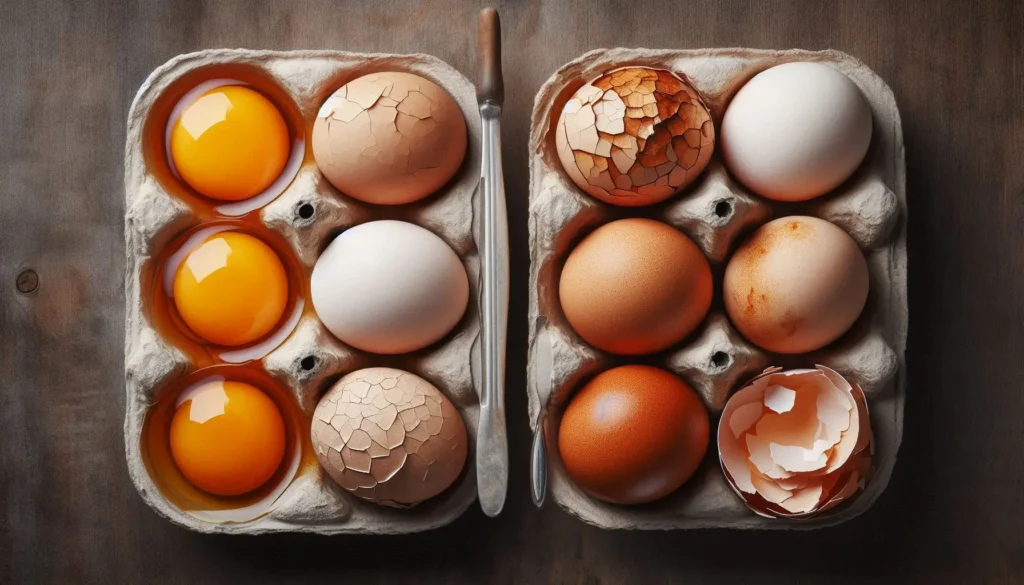
How to Store Fresh Chicken Eggs
Proper storage of fresh chicken eggs ensures they remain safe to eat and retain their flavor and quality. Whether you prefer to store eggs at room temperature or in the fridge, understanding the best practices can make a big difference in how long your eggs last.
Room Temperature Storage
Storing eggs without refrigeration can be a practical choice, especially if you have fresh eggs from backyard chickens. Here’s how to do it safely:
- Choose Fresh, Clean, and Unwashed Eggs: Eggs naturally have a protective coating (bloom) that prevents bacteria from entering the shell. Avoid washing eggs until just before use to preserve this layer.
- Store in a Cool, Dry Place: Keep eggs away from heat sources and direct sunlight. Ideal storage conditions are temperatures below 68°F (20°C).
- Use Within 7 to 10 Days: Fresh eggs stored at room temperature typically remain safe for about a week, depending on the climate.
By following these guidelines, you can safely keep eggs on your countertop for short-term use.

Refrigeration Tips
Refrigerating eggs is the most common and effective way to keep them fresh for longer. Here are some tips for optimal storage:
- Store Eggs in Their Original Carton: The carton protects eggs from absorbing strong odors and helps maintain consistent humidity levels.
- Place Eggs in the Main Section of the Fridge: Avoid storing eggs in the refrigerator door, as frequent temperature fluctuations can shorten their shelf life.
- Keep Them Unwashed: Just like room temperature storage, unwashed eggs last longer because their natural bloom is intact.
Refrigerated eggs can stay fresh for up to 4–6 weeks. Always check for cracks or discoloration before use.
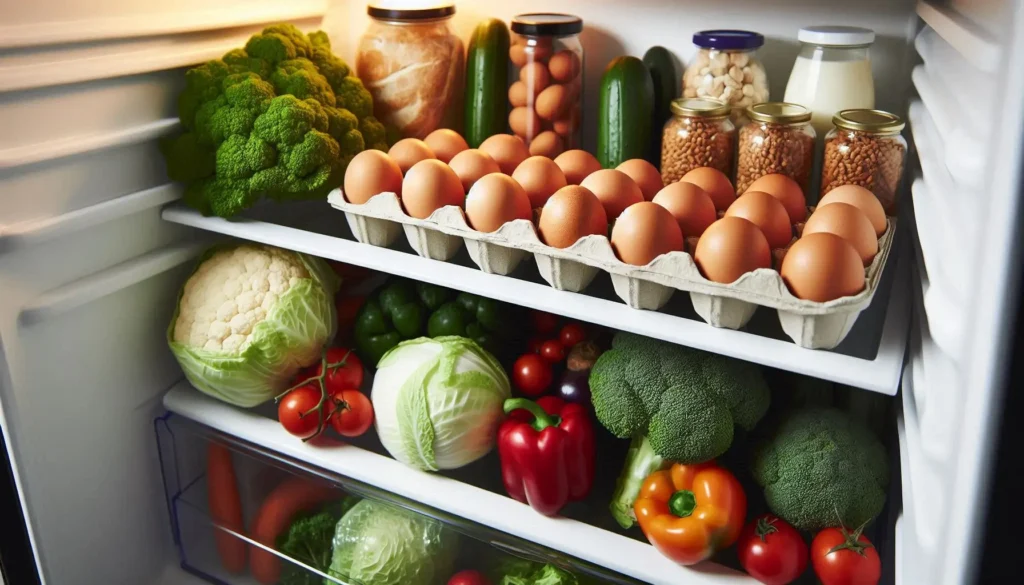
By understanding these simple methods for storing eggs, you can ensure their freshness and quality, whether you choose room temperature storage or refrigeration.
Methods of Preserving Chicken Eggs
Preserving chicken eggs ensures you can enjoy their freshness and nutritional value for months, even when they aren’t readily available. Below are the most effective methods for preserving eggs, along with tips to keep them safe and delicious.
Freezing Eggs
Freezing is a convenient way to extend the shelf life of your eggs while maintaining their quality for cooking and baking.
- Ice Cube Tray Method: Crack eggs into individual compartments of an ice cube tray, whisk lightly, and freeze. Once frozen, transfer the egg cubes to an airtight freezer bag.
- Muffin Tin Method: Use a muffin tin to freeze larger portions of eggs. This method works well for recipes requiring more than one egg.
Frozen eggs can last up to a year when stored correctly.

Water Glassing Eggs
Water glassing is an old-fashioned yet effective way to preserve fresh eggs without refrigeration.
- Supplies and Ingredients: Fresh, unwashed eggs, hydrated lime, and water.
- Step-by-Step Instructions: Mix hydrated lime with water in a large jar, submerge the eggs completely, and seal the container tightly. Store in a cool, dark place.
- Farm Fresh vs. Store-Bought Eggs: Only use farm-fresh eggs for water glassing, as store-bought eggs are often washed and lack the natural bloom.
Water-glassed eggs can stay fresh for up to a year.
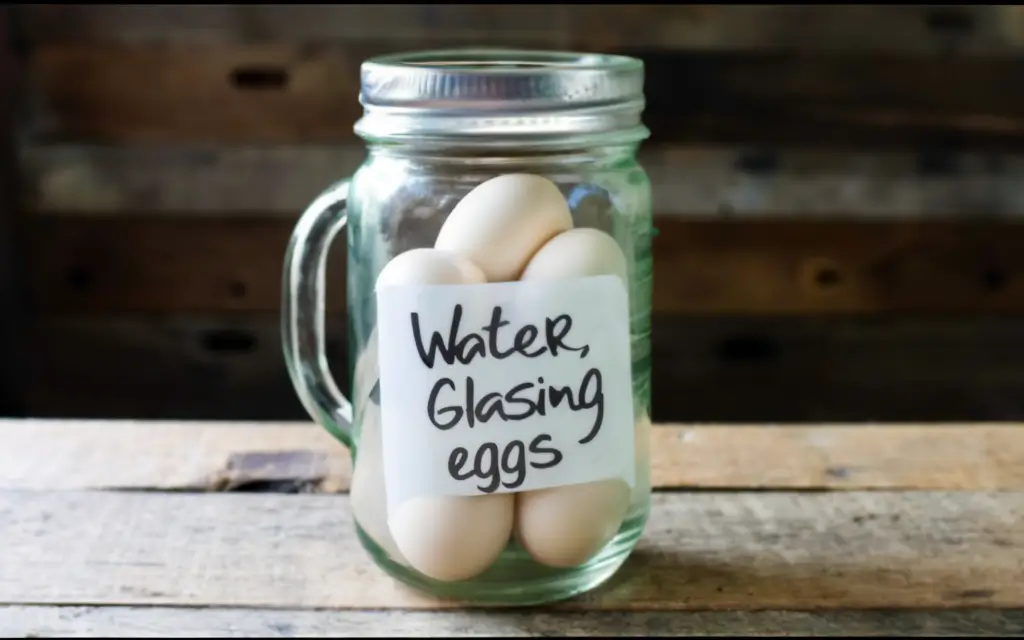
Pickling Eggs
Pickled eggs are a delicious snack and an excellent way to preserve boiled eggs.
- Step-by-Step Guide: Boil eggs, peel them, and place them in a sterilized jar. Prepare a brine with vinegar, water, and spices, pour it over the eggs, and seal the jar. Store in the fridge for at least a week before consuming.
Pickled eggs stay good for several months when refrigerated.
Mineral Oil Preservation
Coating eggs with mineral oil helps retain their natural moisture and blocks air from entering.
- How to Use Mineral Oil: Warm mineral oil slightly and apply a thin layer to clean, unwashed eggs. Store the eggs in a carton in a cool, dark place, turning them every week to maintain freshness.
This method preserves eggs for 3–6 months.
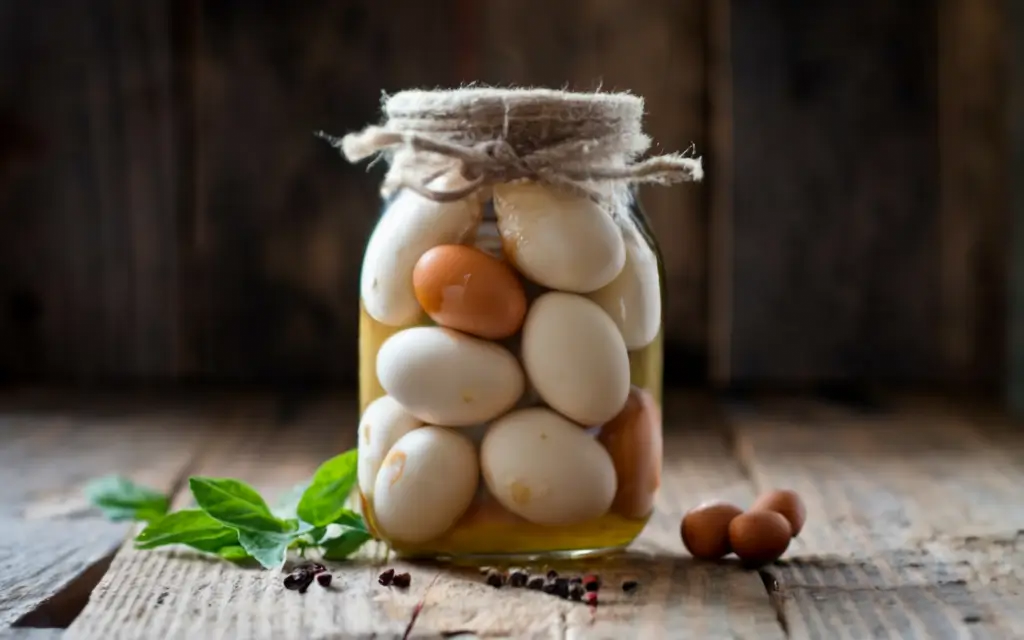
Dehydrating Eggs
Dehydrated eggs are lightweight and perfect for long-term storage or camping trips.
- Safe Temperatures: Dehydrate eggs at a consistent temperature of 145°F (63°C) or higher to kill bacteria.
- Food Safety Risks: Improper dehydration can lead to salmonella contamination, so ensure eggs are fully dried.
- Rehydrating Eggs: Mix one part dried egg powder with two parts water until smooth before cooking.
Freeze Drying Eggs
Freeze drying locks in the nutrients of eggs while significantly extending their shelf life.
- Process: Use a freeze-drying machine to remove moisture from whisked eggs or scrambled egg mixtures.
- Benefits: Freeze-dried eggs are shelf-stable for up to 10 years and easy to rehydrate.

Salting Egg Yolks
Preserving egg yolks with salt creates a flavorful ingredient for grating over dishes.
- Step-by-Step Guide: Cover yolks in a mixture of salt and sugar, refrigerate for several days, and then air dry them until firm.
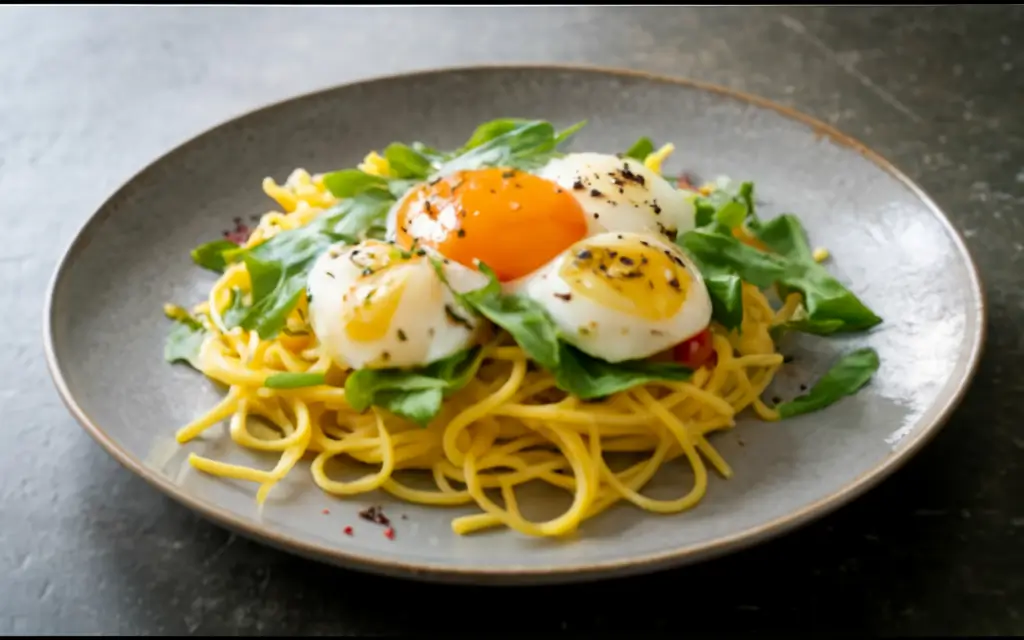
Thermostabilizing Eggs
Thermostabilizing involves heating eggs to a specific temperature to kill bacteria without cooking them.
- Applications: This method is often used in commercial egg products for enhanced safety.
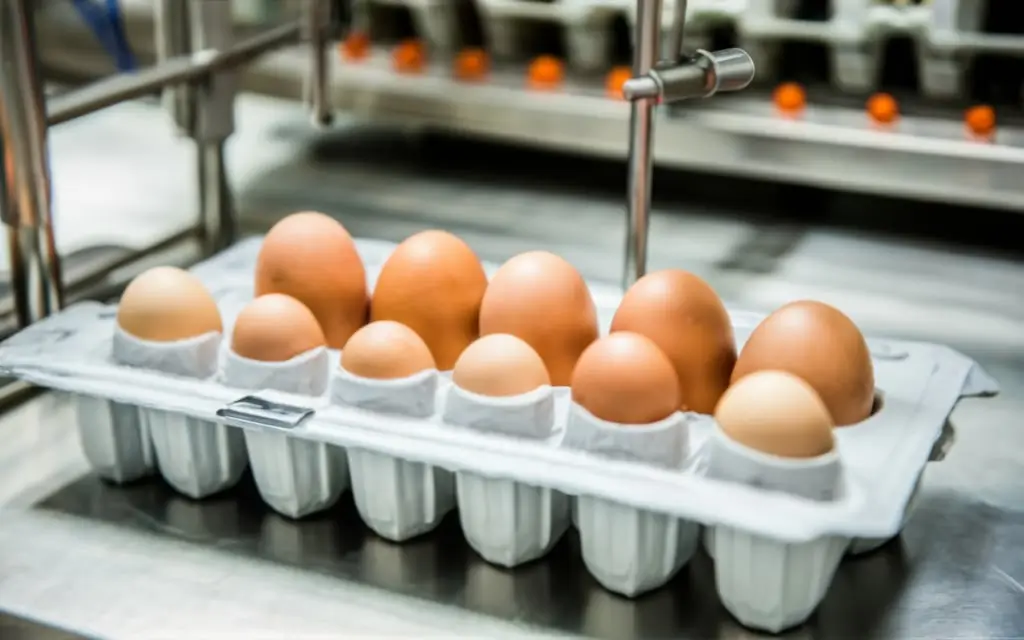
Hard-Boiled Eggs
Hard-boiling eggs is a simple way to preserve them for short-term use.
- How to Store: Place peeled or unpeeled hard-boiled eggs in a sealed container in the fridge. Consume within one week for best quality.
By exploring these methods, you can find the perfect preservation technique to suit your needs and enjoy your eggs for months.
Comparing Egg Preservation Methods
Not all egg preservation methods are created equal. Understanding the advantages and limitations of each method helps you choose the best option for your needs. Below, we compare different techniques based on their shelf life, ease of use, and impact on taste and texture.
Pros and Cons of Each Method
1. Freezing Eggs
Pros:
- Extends shelf life up to a year.
- Preserves nutritional value.
- Suitable for both whole eggs and separated yolks/whites.
Cons:
- Requires freezer space.
- Thawed eggs may have a slightly altered texture, making them better suited for cooking than eating raw.
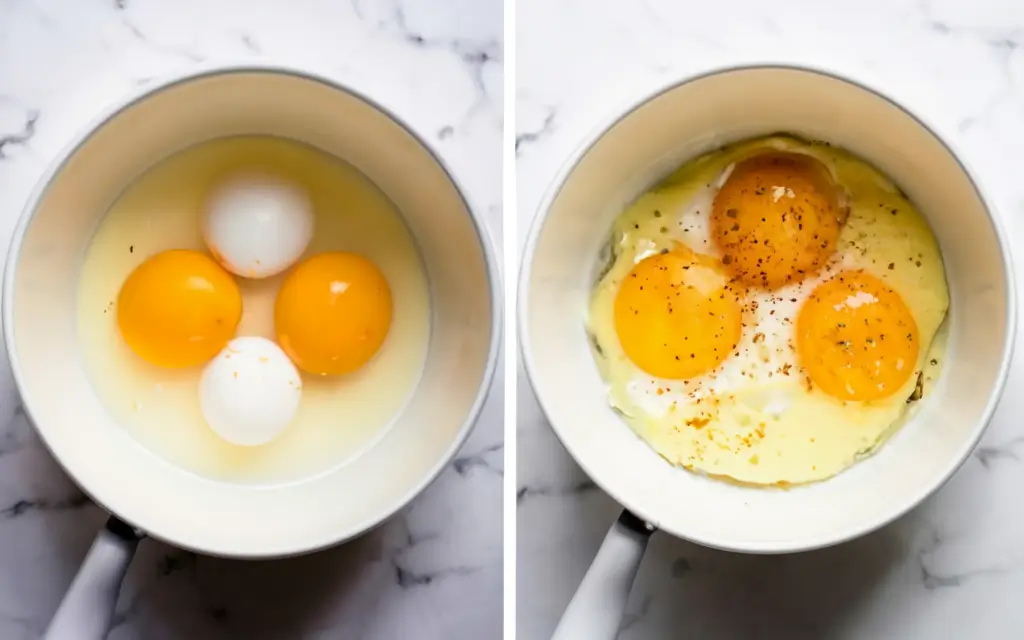
2. Water Glassing Eggs
Pros:
- Allows storage without refrigeration for up to a year.
- Maintains the freshness and texture of raw eggs.
Cons:
- Requires specific supplies like hydrated lime.
- Works only with fresh, unwashed eggs.
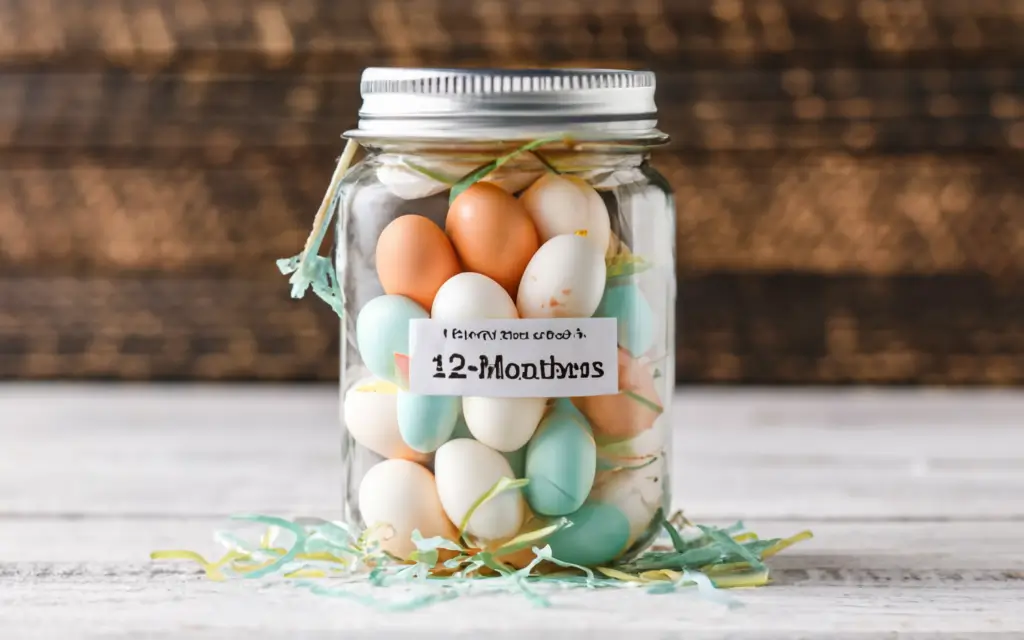
3. Pickling Eggs
Pros:
- Adds a tangy, flavorful twist.
- Ideal for quick snacking or appetizers.
Cons:
- Shorter shelf life compared to other methods (3–4 months refrigerated).
- Alters the natural taste and texture of eggs.
4. Mineral Oil Preservation
Pros:
- Easy and inexpensive.
- Extends shelf life up to 6 months without refrigeration.
Cons:
- Requires weekly turning of eggs for even coating.
- May not be suitable for humid climates.
5. Dehydrating Eggs
Pros:
- Lightweight and space-saving, perfect for long-term storage or camping.
- Shelf-stable for up to 10 years.
Cons:
- Requires a food dehydrator.
- Risks of improper dehydration include bacterial contamination.

6. Freeze Drying Eggs
Pros:
- Longest shelf life (up to 15 years).
- Easy to rehydrate for cooking or baking.
Cons:
- Requires expensive equipment.
- Not easily accessible for home users.
7. Salting Egg Yolks
Pros:
- Adds unique flavor to dishes.
- Simple preparation process.
Cons:
- Preserves only the yolks.
- Limited storage time compared to other methods.

8. Hard-Boiling Eggs
Pros:
- Simple and quick preservation method.
- Ready-to-eat convenience.
Cons:
- Short shelf life (1 week in the fridge).
- Alters the texture of the egg whites.

Making the Right Choice
Each method offers unique benefits and trade-offs. The right choice depends on your storage conditions, how long you need the eggs to last, and your intended use. With these insights, you can confidently select the best preservation method for your needs.
Why Water Glassing is Popular
Among the various methods of egg preservation, water glassing stands out for its simplicity, effectiveness, and ability to maintain the freshness of eggs for months. Whether you’re storing eggs for emergencies or ensuring a steady supply year-round, this technique has become a favorite among homesteaders and food preservation enthusiasts.
Benefits of Water Glassing
Water glassing offers a range of advantages:
- Keeps Eggs Fresh for Months: Properly water-glassed eggs can last up to a year without refrigeration.
- Maintains Taste and Texture: Unlike freezing or pickling, this method preserves the natural taste and texture of fresh eggs.
- Low-Cost and Accessible: The process requires minimal supplies, making it an affordable option for long-term storage.
- Safe and Reliable: When done correctly, water glassing is a safe preservation method for fresh, unwashed eggs.
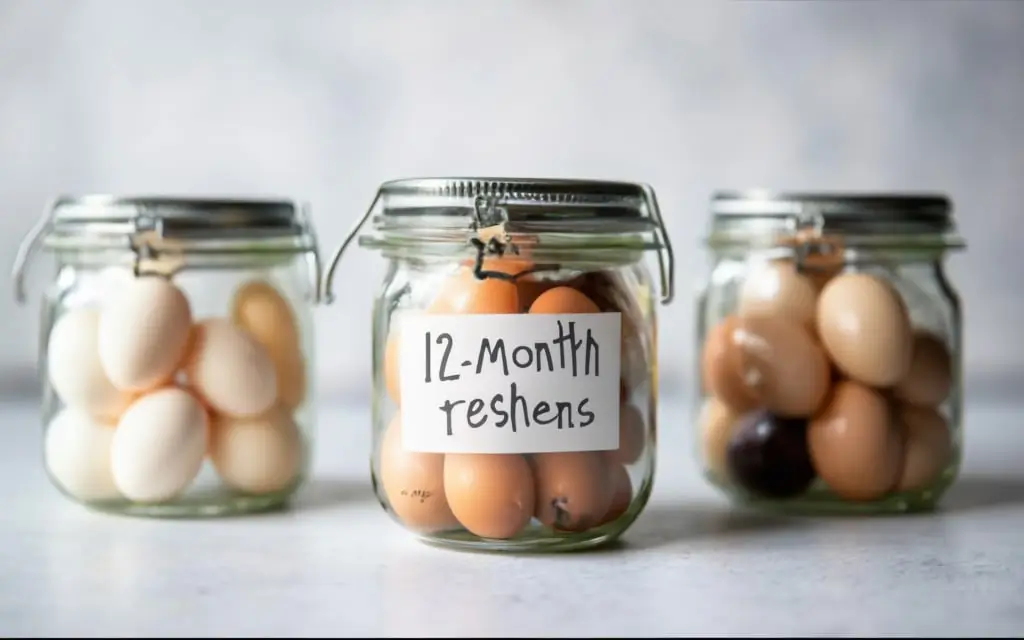
How to Water Glass Eggs
Preserving eggs through water glassing is a straightforward process. Here’s a breakdown of what you’ll need and how to do it:
Supplies and Ingredients
- Fresh, unwashed eggs (preferably farm fresh).
- Hydrated lime (also known as pickling lime).
- Distilled or filtered water.
- A large, clean storage container (glass or food-grade plastic).
Step-by-Step Guide
- Prepare the Solution: Mix 1 ounce of hydrated lime with 1 quart of water. Stir until fully dissolved.
- Add the Eggs: Gently place eggs into the solution, ensuring they’re fully submerged.
- Seal the Container: Cover the container tightly to prevent contamination.
- Store Properly: Keep the container in a cool, dark place.
Storing Tips for Longevity
- Use only clean, unwashed eggs, as washing removes the protective bloom.
- Check the solution periodically to ensure eggs remain submerged.
How Long Do Water-Glassed Eggs Last?
When stored in optimal conditions, water-glassed eggs can last 12 to 18 months. For best results:
- Store eggs at temperatures between 50°F and 70°F.
- Avoid direct sunlight, which can degrade the hydrated lime solution.
Water-glassed eggs are ideal for baking, frying, and cooking. While some users report a subtle change in texture over time, the taste remains nearly identical to fresh eggs.

The Popularity of Water Glassing
The growing popularity of water glassing lies in its ability to combine practicality and cost-effectiveness with long-term reliability. By maintaining egg quality and extending shelf life, this method proves why it’s a go-to solution for preserving nature’s perfect protein source, making it a top contender for anyone searching for water glassing.
Egg Substitutes and Alternative Uses
Egg substitutes are a versatile solution for those who want to explore baking alternatives or need to replace eggs in their diet. Whether you’re looking for plant-based options or a quick fix, substitutes can enhance your recipes without compromising on quality.
Using Egg Substitutes for Baking
For baking, several substitutes work well depending on the role eggs play in your recipe:
- Binding: Use flaxseed or chia seed gel (1 tbsp seed + 2.5 tbsp water = 1 egg).
- Moisture: Applesauce or mashed bananas (1/4 cup = 1 egg) are excellent choices for muffins and cakes.
- Leavening: Baking soda and vinegar (1 tsp soda + 1 tbsp vinegar = 1 egg) create lift in recipes like pancakes.
- Commercial Egg Replacers: These are pre-measured blends designed for flawless results in baked goods.
When baking with substitutes, keep in mind that flavor and texture may differ slightly.
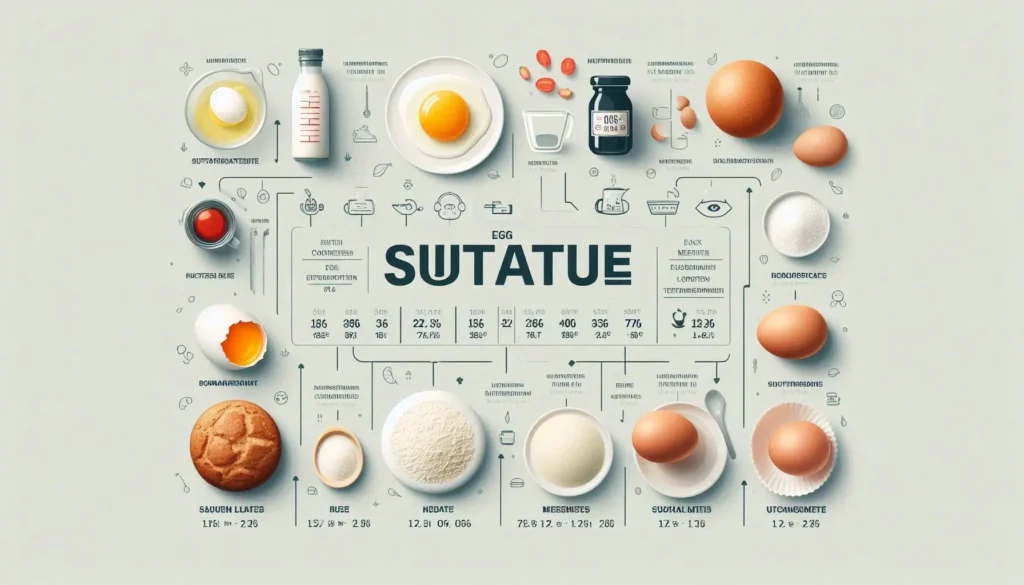
When to Choose Substitutes Over Preserved Eggs
Choosing substitutes can be more practical or suitable in these situations:
- Dietary Preferences: Vegan or allergen-free recipes.
- Convenience: Substitutes require no advance preparation.
- Neutral Flavor: Best for dishes where egg flavor is not desired.
Preserved eggs, however, offer unique benefits like enhanced flavor and are ideal for savory dishes, egg-based casseroles, or meal prep.
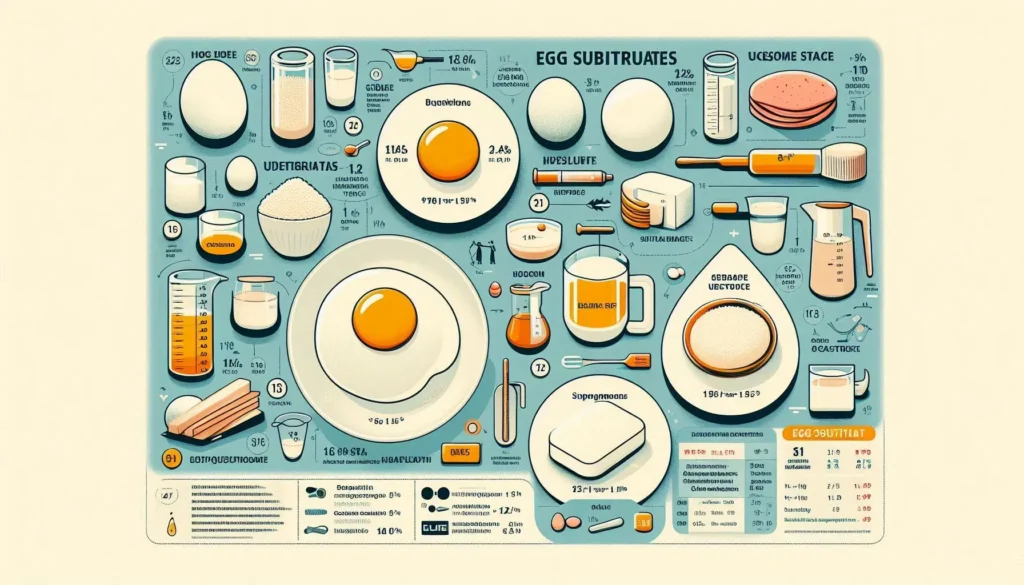
Related Posts in the Preservation Series
Expand your food preservation knowledge with these related articles:
- 25 Ways to Preserve Zucchini
- How to Preserve Sweet Potatoes
- Sweet and Spicy Refrigerator Pickles
- 10 Ways to Use Strawberry Tops + Greens
- 4 Ways to Preserve Cantaloupe
- Is Dry Canning Safe?
These posts will inspire you to make the most of your harvest and reduce food waste.
Additional Resources
Recipes and Nutrition
Preserved eggs unlock endless culinary possibilities! Here are a few ideas to get started:
- Pickled Egg Salad: Add a tangy twist to your favorite dish.
- Salted Yolk Pastries: A rich, indulgent treat.
- Scrambled Freeze-Dried Eggs: Lightweight and packed with protein.
Preservation methods also retain key nutrients, ensuring eggs stay a valuable source of protein and vitamins even after long storage.
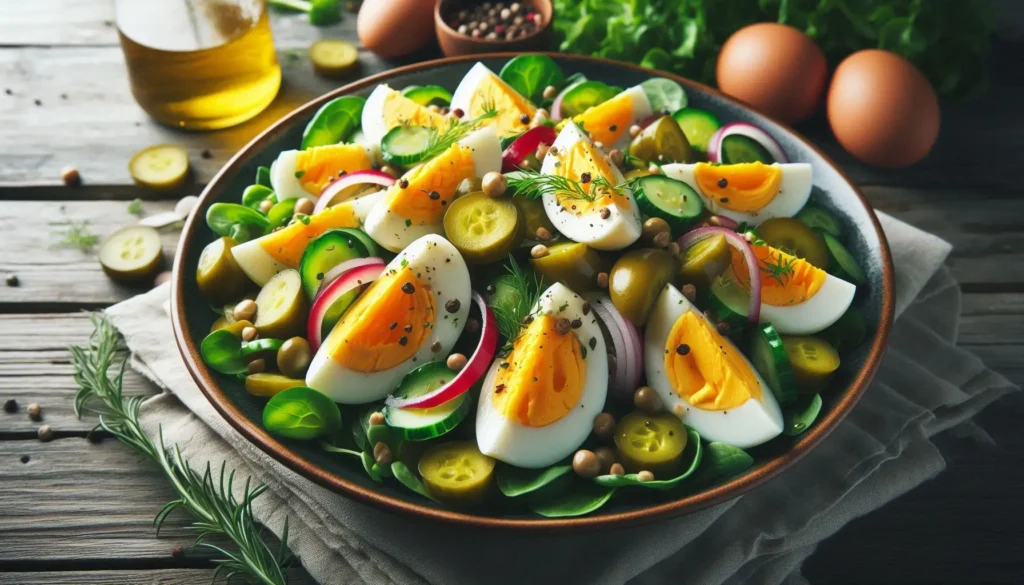
Conclusion
Preserving and storing chicken eggs opens up a world of culinary possibilities while reducing food waste and ensuring a reliable supply of nutritious ingredients. From traditional techniques like water glassing and pickling to modern methods such as freezing and freeze-drying, there’s a solution for every lifestyle and storage need.
For those moments when eggs aren’t an option, versatile substitutes step in, offering practical and delicious alternatives for baking and cooking. Whether you’re preserving eggs for long-term use, exploring creative recipes, or learning how to maintain freshness, these strategies empower you to make the most of this versatile ingredient.
By integrating these practices into your kitchen routine, you can enhance your self-sufficiency, reduce waste, and enjoy eggs year-round in a variety of forms. Dive deeper into related posts, try out new recipes, and join our growing community of homesteaders and food enthusiasts.
Your journey to mastering egg preservation starts here—unlock the potential of every egg and every meal!
You may also like:
How to Lose Weight Naturally and Safely

